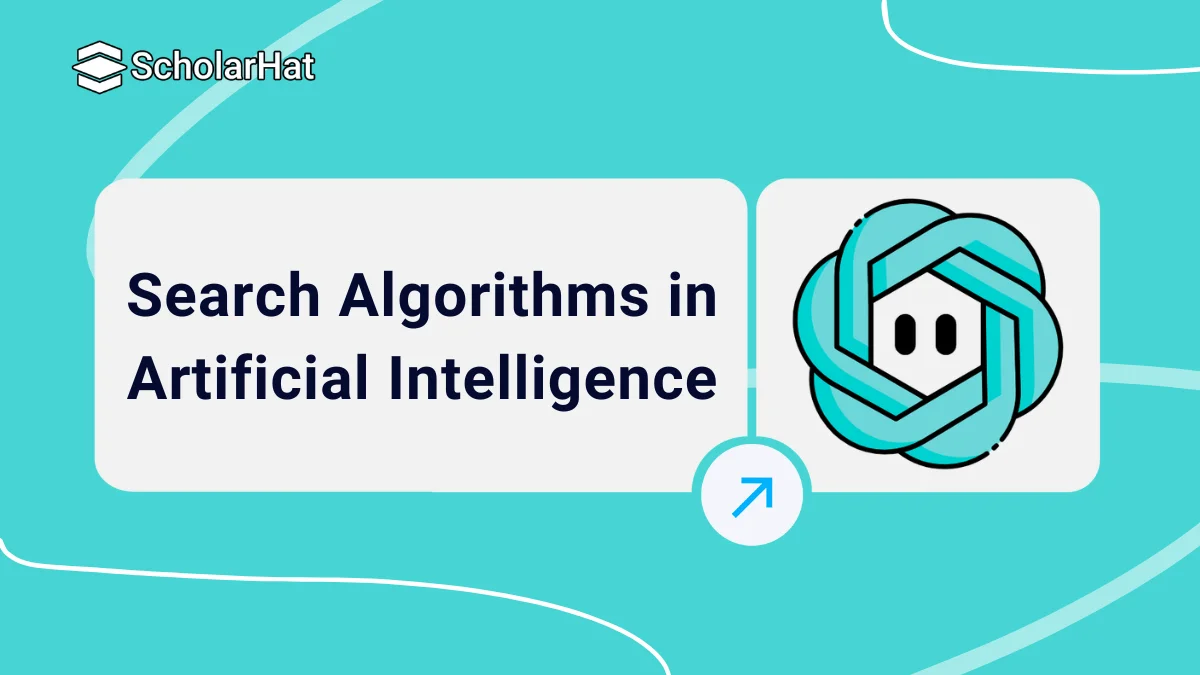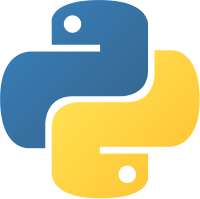13
FebSearch Algorithms in AI - Types of Search Algorithms in AI & Techniques
Search algorithm in Artificial Intelligence is a method used by AI systems to explore possible solutions in a problem space and find a path or answer that meets a specific goal. It systematically examines different states or configurations to reach an optimal or feasible solution.
In this Artificial Intelligence tutorial article, we will explore the universe of search algorithms in AI, including their significance, varieties, guiding principles, benefits, and drawbacks and more on. You start learning AI with the Free Azure AI-900 course and build your AI skills from the ground up!
Importance of search algorithms in information retrieval
Due to the following factors, search algorithms are essential to AI information retrieval:
- Effective retrieval: They speed through vast amounts of data to quickly find the information you're looking for.
- Precision & accuracy: These algorithms use relevance scoring and ranking strategies to find the best results, improving retrieval efficiency.
- Scalability: They are capable of handling massive data collections, ensuring effective retrieval even for huge volumes of data.
- Query optimization: To improve searches and produce accurate and pertinent results, algorithms examine the structure of queries, user intent, and context.
- Personalization & user preferences: Advanced algorithms adapt retrieval results based on interactions and user preferences to offer a customized experience.
- Organization of information: To organize and categorize material to make exploration easier, search engines use clustering, classification, & topic modeling.
- Continuous improvement: Over time, algorithms improve retrieval results by making adjustments based on user input and system performance.
Types of search algorithms in AI

AI uses a variety of search algorithms, each with its own special properties and uses
Among the most commonly used types of Search Algorithms are:
- DFS (Depth-First Search): This algorithm investigates a path as thoroughly as feasible before turning around. It is frequently employed when getting to the bottom of a search space is the main objective.
- Breadth-First Search (BFS): Unlike depth-first search (DFS), BFS investigates every neighboring node before proceeding to the following level. It can be used to determine the shortest route between two nodes.
- A* Search: A* is an algorithm for heuristic searching that calculates the expense of achieving the objective using an evaluation function. It is commonly used in pathfinding issues and incorporates the benefits of both DFS and BFS.
- Genetic Algorithms: Natural selection is the source of inspiration for these algorithms. They look for the best answers to challenging situations using evolutionary concepts.
How search algorithms work in artificial intelligence
Artificial intelligence (AI) search algorithms use a logical process to locate the required data. Here is how they usually work:
- Define the search space: Create a model of potential states so they can be explored.
- Start from the first state: Start your search from the first state you can find in the search space.
- Explore neighboring states: Examine surrounding states using guidelines or heuristics to assess their significance based on standards like resemblance.
- Move towards goal state: Iteratively advance toward the objective state by employing strategies like backtracking or prioritization.
- Evaluate and improve: To increase accuracy and efficiency, continuously monitor progress, and modify relevant criteria, heuristics, or user preferences.
- Reach the goal state: Stop searching after you've located the desired data or the best match, which satisfies the set goal criteria.
- Performance optimization: To minimize computational resources & retrieval time, optimize algorithms using methods like pruning, heuristic optimization, or parallelization.
Advantages and limitations of search algorithms in AI
- An approach that is methodical and well-organized: Search algorithms offer a structured way of quickly looking through enormous volumes of data, ensuring a methodical retrieval procedure.
- Effective and precise retrieval: These algorithms make it possible to identify pertinent information quickly, enhancing the effectiveness and precision of information retrieval.
- Handling complex search spaces: Search algorithms have the ability to handle complex search spaces, which enables them to travel through complex data structures or issue domains.
- Adaptability to different challenges: Search algorithms are flexible and adaptable in numerous AI disciplines since they may be used to solve different kinds of problems.
AI search algorithm limitations
- Performance problems with overly large or complex search spaces: When the search space is too big or complicated, search algorithms may run into performance problems, which might slow down retrieval or demand more computation.
- Dependence on heuristics and input data quality: The effectiveness of the search results is significantly influenced by the precision of the used heuristics and the input data quality. The performance of search algorithms might be impacted by inaccurate or lacking data.
- Non-guarantee of optimal solutions: In dynamic or incomplete search spaces, where the best solution might not be recognizable within the current limitations, search algorithms may not always guarantee finding the optimal solution.
Applications of search algorithms in AI
Applications for search algorithms can be found throughout several AI fields, including:
- Natural language processing: Search algorithms are used for information extraction, query resolution, sentiment analysis, and other language processing tasks in natural language using AI.
- Image recognition: These algorithms help in the search for pertinent photos using user queries or matching visual cues.
- Recommendation systems: Search engines make personalized suggestions possible by matching user preferences with products that are appropriate.
- Robotics: To ensure effective exploration and effective mobility, search algorithms are essential to robot path planning and navigation.
- Data mining: These methods make it easier to do tasks like grouping, classification, & anomaly detection by extracting useful insights and patterns from vast datasets.
Improving information retrieval with search algorithms
Think about the following concepts to improve information retrieval using search algorithms:
- Algorithm selection: Carefully select the best algorithm based on the current issue and the resources at hand. Making wise decisions requires an understanding of the traits and constraints of various algorithms.
- Parallel computing: Utilizing parallel computing techniques, you can enhance the search process. The retrieval process can be sped up and more effectively handled by spreading the task across several processors or machines.
- Refining heuristics: Heuristics can be improved by tweaking the search engine's heuristics in order to increase precision and efficiency. Heuristics can be modified in accordance with the knowledge base and problem domain to improve retrieval.
Best Practices of Search Algorithms in AI
AI search algorithm best practices include:
- Problem understanding: Gaining an in-depth knowledge of the problem's needs will help you choose an algorithm.
- Algorithm selection: Select the best algorithm depending on the features of the problem and variables like efficiency, accuracy, scalability, & cost.
- Heuristic design: Create efficient heuristics to efficiently direct the search process towards the intended outcome.
- Techniques for performance optimization: Examine methods like parallel computing, memory-efficient data structures, and pruning.
- Evaluation and iteration: Constantly assess and enhance the performance of the algorithm through feedback analysis and incremental advancements.
- Think about trade-offs and restrictions: To improve the performance of the algorithm, take into consideration constraints, resource limits, and user preferences.
- Testing and validation: Use relevant datasets and real-world examples to thoroughly test and validate the method.
Summary
AI search algorithms are the foundation of information retrieval systems, allowing us to quickly and precisely locate the necessary data from enormous data sets. To master the art of search algorithms in AI, it is essential to comprehend the various types of search algorithms, their guiding principles, benefits, limitations, and implementation best practices.
And if you want to stand out in the AI field, enhance your skills and unlock new opportunities with the Azure AI Engineer Training and Azure AI Foundry Course.
Take our Artificialintelligence skill challenge to evaluate yourself!

In less than 5 minutes, with our skill challenge, you can identify your knowledge gaps and strengths in a given skill.







